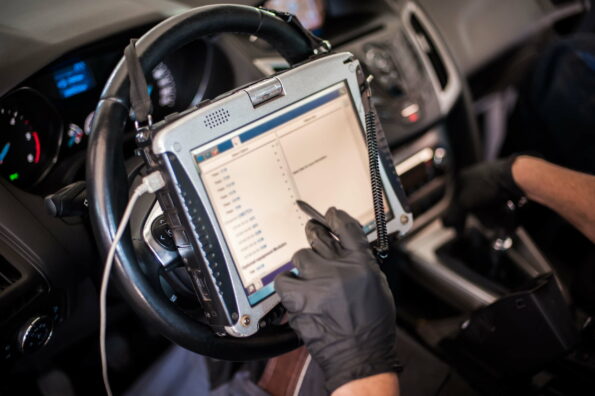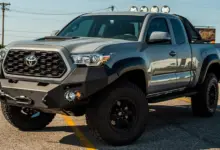What are auto warranties and how have they evolved?
With the automotive industry rapidly changing, it’s important to stay up to date on what types of warranties are available for your car. In this article, we’ll take a look at different types of auto warranties and how they have evolved over time. We’ll also discuss which ones could be the best option for you depending on your budget and needs. So, if you’re looking to protect your new car investment, read on!
An auto warranty is a contract between a car manufacturer and the consumer, designed to protect them from unexpected repair costs. This type of warranty has been around for decades, evolving over time to include additional coverage and consumer protection. In this article, we will look at how auto warranties have evolved and what they currently cover, as well as exploring the different types of warranties available today and what to look for when purchasing one. By understanding how auto warranties work and their importance, you can ensure your car is safe and reliable for years to come.
[lwptoc]
What is a car warranty?
A car warranty is a contract between a car manufacturer or dealer and a customer that provides protection against repairs or replacement of defective parts. Most new cars come with a basic warranty that covers the vehicle for a certain period of time, typically 3 years or 36,000 miles. Some manufacturers offer extended warranties that cover the vehicle for longer periods of time, usually up to 5 years or 60,000 miles.

Warranties have evolved over time to become more comprehensive, covering more components and offering more protection to consumers. In the past, warranties were often limited to major mechanical components such as the engine and transmission. Today, many warranties also cover things like the audio system, navigation system, and other electronic components. Some manufacturers even offer roadside assistance programs as part of their warranty coverage.
While most new cars come with some form of warranty coverage, it’s important to read the fine print before purchase to understand exactly what is and is not covered. Warranties can vary greatly in terms of coverage and length, so it’s important to find one that best meets your needs.
The evolution of the auto warranty
Auto warranties have been around since the early days of the automotive industry. Originally, they were designed to protect manufacturers from liability in the event that a car failed to live up to its advertised performance. Over time, as cars became more reliable and consumers became more savvy, auto warranties began to evolve.
Today, most auto warranties are still backed by the manufacturer, but there are a number of different types of coverage available. Some warranties cover specific components, while others offer comprehensive protection. Some are even transferable to subsequent owners if the car is sold before the warranty expires.
As consumers have become more demanding, manufacturers have had to adapt their warranty offerings to meet those needs. Today’s auto warranties are far more comprehensive than they once were, and they continue to evolve to keep pace with the changing automotive landscape.
Why are warranties so important when buying a new car?
Warranties are important when buying a new car for several reasons. First, they protect your investment. If something goes wrong with your car, you won’t have to pay for the repairs. Second, warranties give you peace of mind. You know that if something does go wrong, you’re covered.
Third, warranties can save you money in the long run. If you have to pay for repairs out of pocket, it can cost a lot of money – especially if the problem is serious. fourth, warranties show that the manufacturer stands behind their product. If a company is willing to offer a warranty, it means they believe in their product and they want to ensure their customers are happy.
Finally, warranties give you a chance to try out a new car without taking on all the risk yourself. If you don’t like the car or it doesn’t meet your needs, you can return it without having to worry about losing money on the purchase.
Types of warranties – Express vs. Standard vs. Unconditional
As auto warranties have evolved, so have the types of warranties available to consumers. The three most common types of auto warranties are express, standard, and unconditional.
An express warranty is a written promise from a car manufacturer or dealer that promises to repair or replace any defective parts within a certain time period. A standard warranty is similar to an express warranty, but it is not as detailed or specific. It typically covers repairs for a certain number of miles or years, whichever comes first. An unconditional warranty is the most comprehensive type of warranty available and covers all repairs, regardless of when they occur.
When do I need an extended warranty?
Most carmakers offer a warranty that covers the vehicle for three years or 36,000 miles, whichever comes first. However, you may be able to purchase an extended warranty from the automaker or from a third-party provider. An extended warranty is basically an insurance policy that helps cover repairs after your original warranty has expired.
There are a few things to consider before buying an extended warranty, such as the length of coverage, what’s included and excluded from the policy, and the cost. You’ll also want to make sure you’re getting coverage from a reputable company.
If you’re not sure whether or not you need an extended warranty, ask yourself a few questions:
- How long do you plan on keeping the car? If you plan on selling it or trading it in after a few years, you probably won’t need an extended warranty since most cars come with some sort of coverage already.
- Do you have reliable transportation to get to work or school? If your car is your only form of transportation, you might want to consider an extended warranty in case something happens and you need repairs.
- Can you afford unexpected repairs? If your budget is tight and you can’t afford unexpected repairs.
More Questions you might have about auto warranties
- How long do auto warranties typically last?
- What types of things are covered by an auto warranty?
- What is the difference between a bumper-to-bumper warranty and a powertrain warranty?
- How much does an auto warranty cost?
- Is it worth getting an extended warranty on my car?
An auto warranty is a contract that covers repairs or replacement of certain parts or systems on a vehicle. Warranties typically last for a few years and are included in the purchase price of the vehicle. Some common things that are covered by an auto warranty are the engine, transmission, drivetrain, and electrical system.
The length of an auto warranty varies depending on the make and model of the vehicle. Bumper-to-bumper warranties generally cover everything on the vehicle except for wear items like brakes and tires. Powertrain warranties typically just cover the engine and transmission.
Auto warranties usually do not cost extra, but extended warranties can be purchased for an additional cost. Whether or not an extended warranty is worth it depends on the individual situation.
Must Read Our Article
Tyre Manufacturing Date Guide. Find Car Tyre Age in Month, Year
What do auto warranties cover?
Most auto warranties cover the cost of repairs for a certain period of time after the vehicle is purchased. For new cars, the warranty may last for several years and cover most major components. For used cars, the warranty may only cover a limited number of components or systems.
Some common items that are usually covered by an auto warranty include the engine, transmission, drivetrain, electrical system. Some manufacturers also offer extended warranties that cover additional items or provide coverage for a longer period of time.
When choosing an auto warranty, it is important to read the fine print and understand what is and is not covered. It is also important to compare different plans to find one that best suits your needs.

